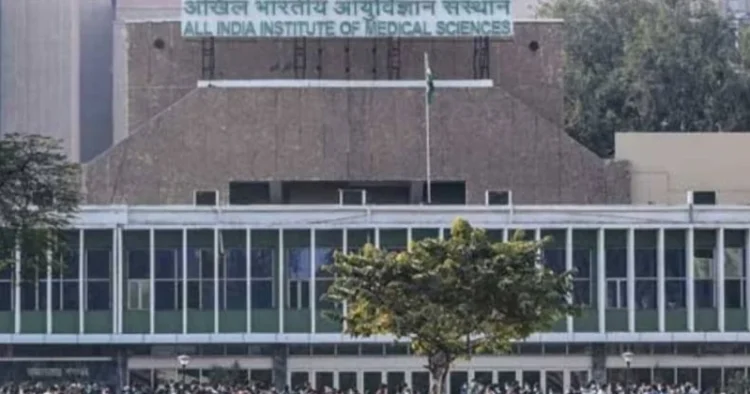The Department of Rheumatology, AIIMS New Delhi, signed a Memorandum of Understanding (MoU) with the Directorate General of Employment (DGE), Minister of Labour and Employment, at Shram Shakti Bhawan in the national capital.
The MoU with DGE, signed on February 1, is tipped to bring a ray of hope to patients with disabilities arising due to rheumatological disorders by addressing various aspects of their challenges.
The MoU will help instil hope in patients regarding their livelihood. It may provide institutionalised support for their economic upliftment and offer better opportunities for vocational rehabilitation, thereby fostering resilience among the patients.
Patients with rheumatological diseases often possess employable skills but lack the necessary certifications. Through collaboration with the National Career Service Centres for Differently Abled (NCSC-DA), MoU aims to help these individuals obtain certifications for their skills, enhancing their chances of gainful employment. Furthermore, training in various industrial trades based on their residual skills can open doors to new opportunities.
The chronic nature of rheumatological illnesses often leads to a significant caregiver burden among family members and relatives. Economic independence resulting from the MoU’s initiatives is expected to alleviate this burden, providing relief to caregivers and empowering patients.
The MoU creates opportunities for patients with disabilities to participate in job fares organised by NCSC-DA, enabling them to secure gainful employment and progress in their careers. This aligns with the recent advances in the employment landscape made by the Directorate General of Employment, offering new avenues for such patients.
Stressors associated with rheumatological diseases have been linked to poor control of disease despite optimum therapy. The better economic prospects facilitated by the MoU are anticipated to improve the overall quality of life for these patients, their relationships, educational status, work environment, social status, wealth, and a sense of security and safety.
The MoU with DGE holds the promise of significantly improving the lives of patients with disabilities developing as a consequence of rheumatological diseases. By instilling hope and providing opportunities for skill certification and gainful employment, it will reduce caregivers’ burden and enhance the overall quality of life of such patients. This collaboration is poised to bring about positive and meaningful changes for these individuals with rheumatic diseases with disabilities.
Prof Uma Kumar, who signed the MoU on behalf of AIIMS, lauded the efforts taken by the Director General of Employment, MoLE, towards employment of Persons with Disabilities (Divyangjan).
The event was graced by Prof. M. Srinivas, Director AIIMS, New Delhi; Arti Ahuja, Secretary M/o Labour & Employment; Ramesh Krishnamurthi, Additional Secretary MoLE; and Amit Nirmal, Deputy Director General (Employment), MoLE, Government of India.
Rheumatological disorders are one of the top 10 reasons for total disability. Patients with rheumatological disorders often face significant challenges, including the development of disabilities, despite receiving appropriate treatment.
Psychological trauma, societal stigmatisation, and the burden of increasing medical costs further exacerbate their struggles.
Additionally, the lack of vocational opportunities and their impact on education and vocation, particularly for those with juvenile-onset diseases, contribute to their overall hardships.
We have seen locomotor impairments in spondyloarthritides, rheumatoid arthritis, psoriatic arthritis, and juvenile idiopathic arthritis. There have been visual impairments in certain immune-mediated diseases like systemic lupus erythematosus, vasculitis, Sjogren’s syndrome, etc.
With neuropsychological involvement, there have been cases of intellectual disabilities, too.
The need for lifelong treatment adds to the economic burden on the family. Many a time, these patients are left unattended, even by their families.
(with inputs from ANI)




















Comments